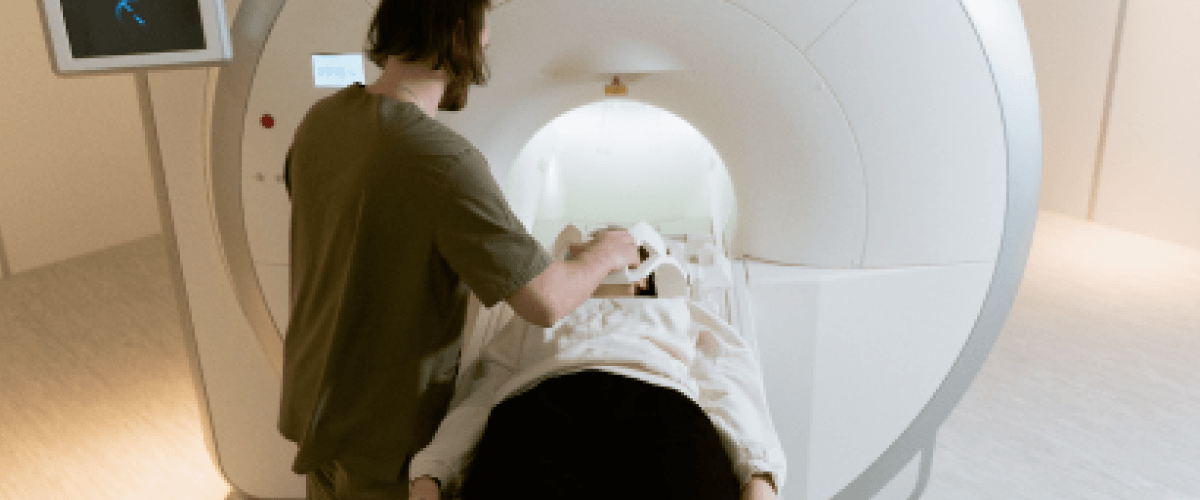
How PET CT Scans Can Help Diagnose, Monitor & Treat Cancer
PET/CT scan is a powerful diagnostic tool that combines two imaging technologies to provide a detailed view of the inside of the body. It is commonly used in cancer diagnosis, staging, and treatment monitoring. Here’s what you need to know about PET/CT scan:
What is a PET/CT scan?
PET/CT scan stands for Positron Emission Tomography/Computed Tomography scan. PET is a nuclear medicine imaging technique that uses radioactive tracers to produce three-dimensional images of the inside of the body. CT scan, on the other hand, uses X-rays to produce detailed cross-sectional images of the body. The combination of these two technologies provides detailed information about the body’s anatomy and metabolic activity.
How is PET/CT Scan Used in Cancer Diagnosis and Treatment?
PET/CT scan is commonly used in cancer diagnosis and treatment. The scan can detect cancer cells in the body and determine the extent and spread of the cancer. PET/CT scan is also used to monitor the effectiveness of cancer treatment and detect any cancer recurrence. It can also be used to guide cancer treatments, such as radiation therapy and surgery, by pinpointing the location of the cancer cells.
What to Expect During a PET/CT scan?
Before the scan, a small amount of radioactive tracer is injected into the patient’s vein. The tracer circulates throughout the body and is absorbed by the cells. The patient then rests for approximately an hour to allow the tracer to distribute throughout the body. During the scan, the patient lies on a table that moves through a PET/CT scanner. The scan usually takes between 30 to 60 minutes. The patient may need to refrain from eating or drinking for several hours before the scan, depending on the type of tracer used.
What are the Benefits of PET/CT scan?
PET/CT scan provides several benefits in cancer diagnosis and treatment. It is a non-invasive and painless procedure that provides detailed information about the body’s anatomy and metabolic activity. It can detect cancer cells that may not be visible in other imaging techniques. PET/CT scan can also monitor the effectiveness of cancer treatment and detect any cancer recurrence. Furthermore, it can guide cancer treatments, such as radiation therapy and surgery, by pinpointing the location of the cancer cells.
Are There Any Risks or Side Effects of PET/CT scan?
PET/CT scan is generally safe and has few side effects. The radioactive tracer used in the scan is short-lived and quickly eliminated from the body. The amount of radiation exposure is minimal and considered safe for most patients. However, some patients may experience mild side effects, such as allergic reactions to the tracer or discomfort from lying still during the scan.
MGM Cancer Institute is equipped with state-of-the-art PET/CT scanner to provide high-quality diagnostic imaging for cancer patients.
Our One Stop PET/CT Scan Services includes:
- Expert interpretation and reporting of scan results by experienced radiologists
- Image-guided biopsy for accurate diagnosis of cancer
- Personalized cancer treatment planning by multidisciplinary team of oncologists, nuclear medicine specialists and other experts based on the scan results
PET/CT scan is an essential tool in cancer diagnosis and treatment. It provides detailed information about the body’s anatomy and metabolic activity and can detect cancer cells that may not be visible in other imaging techniques. At MGM Cancer Institute, we offer One Stop PET/CT Scan Services for accurate and timely cancer diagnosis and treatment planning. Speak with one of our Nuclear Medicine experts. Call us at +91 44 4251 5151 to schedule an appointment.
Written by,
Dr Krishnaswamy Thirumurthi
Head of the Department- Nuclear Medicine
Department of Nuclear Medicine
Contact Us
Visiting Hours
OPEN 24 hours 7 days a week.
OPD Timings : Monday to Saturday
( 9:00 AM to 5:30 PM )
Appointments
Emergency
Visit the hospital
MGM Cancer Institute
No 119 & 121, Nelson Manickam Road, Raajeswari Street, Rajaram Mehta Nagar,
Aminjikarai, Chennai – 600029
At MGM Cancer Institute, we believe in curing the fear of cancer first. We understand that battling cancer is not just a physical fight, but a mental and emotional one as well. Our dedicated team is committed to providing exceptional healthcare that improves your overall well-being and eases the anxiety that comes with cancer. With a 150-bed facility in the heart of your city, we are here to support you every step of the way.
© MGM Cancer Institute. All Rights Reserved. Last updated on 20-01-2025.
















